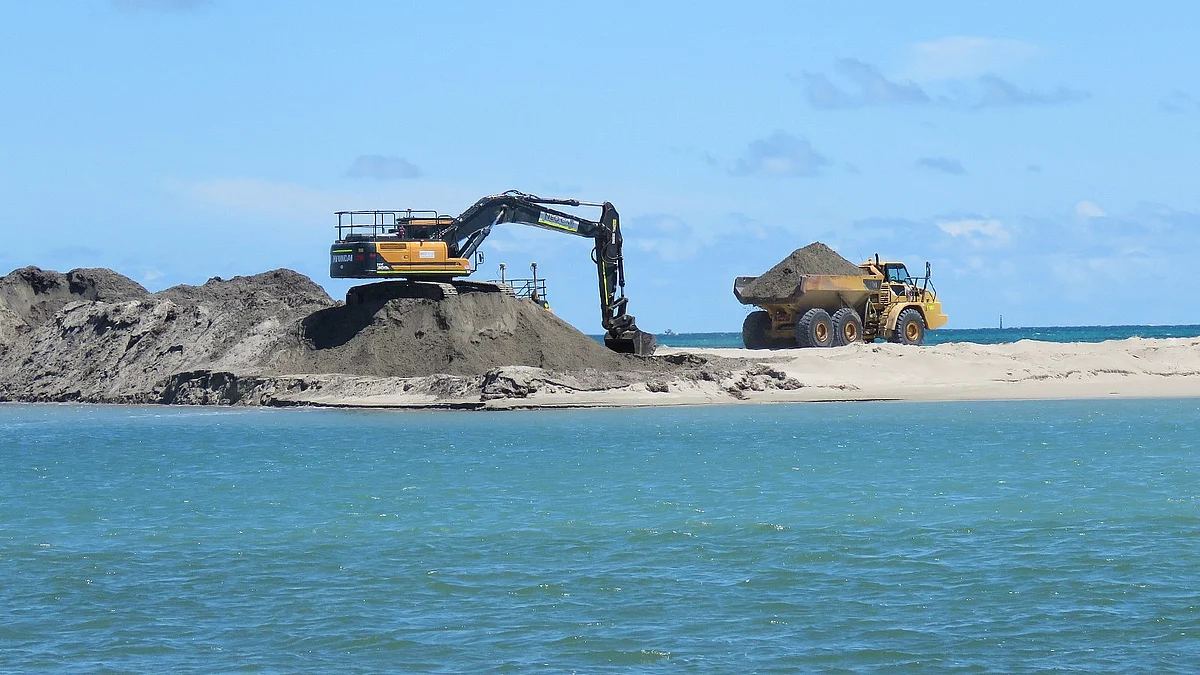Nation
After Char Dham and Nicobar, Centre cites 'national security' for key minerals
Environment ministry exempts mining proposals involving atomic, critical, and strategic minerals from public consultation requirements

The Ministry of Environment, Forest and Climate Change has exempted mining proposals involving atomic, critical, and strategic minerals from public consultation requirements, the Indian Express has reported.
This exemption, announced via a recent office memorandum (OM), is based on 'national defence and security requirements and strategic considerations'.
The move follows requests from the Ministry of Defence and the Department of Atomic Energy (DAE). While these projects will no longer require public hearings, they will apparently undergo “comprehensive appraisal” by Central-level expert committees, regardless of project size.
The ministry cited provisions under the Environment Impact Assessment (EIA) Notification, 2006 — and its amendments — which already exempt defence-related projects from public consultation.
“Keeping in view national defence and security requirements and strategic considerations, all mining projects of atomic minerals notified in Part B and critical and strategic minerals notified in Part D of the First Schedule of the MMDR Act shall be exempted from Public Consultation… and will be appraised at the Central level irrespective of the lease area,” the OM stated.
The EIA Notification mandates environmental screening and public hearings to address concerns from communities affected by developmental projects. This exemption removes the public consultation step for select mineral mining projects.
In its 4 August request, the defence ministry highlighted the critical role of rare earth elements in defence technology — including radar, sonar, communications, military vehicle components, and precision-guided munitions.
India’s limited rare earth reserves and global supply concentration pose a “huge supply risk”, it said, emphasising the need for a steady domestic supply.
“The Ministry of Defence has requested that mining projects related to critical and strategic minerals be treated as projects concerning national defence and security and be exempted from public consultations for Environmental Clearances,” the OM added.
Similarly, the DAE’s letter dated 29 August noted the importance of thorium, extracted from monazite beach sand, as a fuel for India’s atomic energy programme. It also called for increased production of uranium and other minerals, seeking exemption from public consultation.
Published: undefined
This exemption aligns with broader government efforts to speed up approvals for strategic mineral projects. The Centre already categorises critical minerals separately on its online clearance portal, Parivesh, after a Ministry of Mines proposal.
Earlier this month, the government amended the Van (Sanrakshan Evam Samvardhan) Rules, 2023, allowing faster forest approvals for critical and strategic mineral projects.
The Mines and Minerals (Development and Regulation) Amendment Act, 2023 added atomic, critical, and strategic minerals to its schedules, signalling a push to boost their exploration and extraction.
Published: undefined
The BJP government has previously invoked national security to bypass environmental clearances in major infrastructure projects, notably the Char Dham road project in Uttarakhand and the Great Nicobar Island development project.
The Char Dham project, an 889-km initiative to widen roads leading to important pilgrimage sites, sparked environmental concerns due to landslides, deforestation, and impacts on fragile Himalayan ecosystems. However, the defence ministry argued that wider roads were essential for moving troops and heavy equipment to the sensitive Indo-China border amid ongoing tensions.
Initially, the Supreme Court restricted road widening, but later allowed 10-metre wide roads in strategic areas after defence ministry assurances that such upgrades were vital for national security.
The Great Nicobar Island project, a Rs 72,000 crore plan to build a transshipment port, airport, and township, raised alarms among environmentalists and indigenous groups over deforestation and damage to coastal ecosystems, including endangered species habitats.
Published: undefined
Here, too, the government justified the project’s environmental clearances on strategic grounds, citing the island’s critical location near international sea lanes and its importance for India’s maritime security and economic interests.
In both instances, environmental safeguards were relaxed or fast-tracked, mirroring the government’s current approach to critical mineral mining clearances under the banner of national interest.
With agency inputs
Published: undefined
Follow us on: Facebook, Twitter, Google News, Instagram
Join our official telegram channel (@nationalherald) and stay updated with the latest headlines
Published: undefined